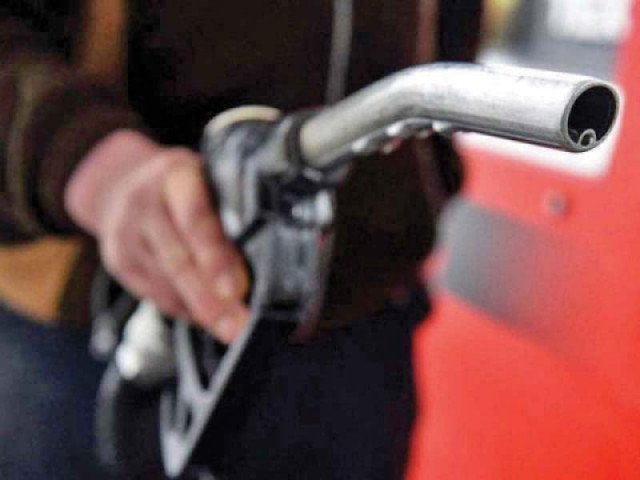Diesel shortage looms over global oil price hike
Country only has five days of stocks left amid Russia-Ukraine war

The country has been left with only five days of diesel stocks following oil prices in the international market hitting around $112 per barrel that stood at $94 per barrel before the start of Russia-Ukraine war.
The war has caused the falling of global diesel stocks and other middle distillates to the lowest seasonal level since 2008.
According to the US Energy Information Administration, distillate fuel oil inventories in the US fell by 21% to 30 million barrels that were below the pre-pandemic five-year seasonal average and at the lowest level since 2005. The stock in Europe also fell by 8% to 35 million barrels -- below the pre-pandemic five-year average at the lowest level since 2008.
The Oil Companies Advisory Council (OCAC), a body of oil industry, had already warned the Pakistani government about the diesel shortage crisis due to depletion of stocks globally. Other reason was that Pakistani banks had also put the oil companies in high-risk category and refused to grant loans.
The OCAC had also written a letter to Pakistani central bank governor to intervene in this regard.
The Pakistan State Oil (PSO) – the state-run oil marketing company -- has informed the energy ministry (petroleum division) about the situation in a letter sent to the director general oil.
The company pointed out that oil marketing companies (OMCs) had defaulted in oil imports, especially high-speed diesel (HSD), from December to March because of the Russia-Ukraine war.
The PSO said it had resulted in a shortfall of 205,000 metric tons of diesel imports from January to March 2022.
The PSO has already awarded two HSD cargoes in March 2022 through the tendering process in addition to three cargoes planned with the Kuwait Petroleum Corporation. However, it did not receive any bids for its tenders opened for the delivery of HSD cargoes in the first fortnight of April 2022 because of the international market situation.
The PSO has again floated an urgent tender for the same period. The company has pointed out in the letter that the PSO had consistently highlighted this non-compliance in product review meetings. It claimed that it had also cautioned about the risk to the country's supply chain in several product review and other meetings with the Oil and Gas Regulatory Authority (Ogra).
“However, no positive outcome or action on part of the OMCs has been witnessed to date which is exposing the country to the risk of a dry-out,” it added. The PSO sought immediate enforcement of licensing requirements for stock replenishment on the faltering OMCs. The Ogra had suggested that the PSO should import oil for other OMCs.
However, the PSO had resisted this move saying that it was against the competitive practice and furthermore it had been facing financial issues due to high ever receivables against different clients.
“As per the OGRA Ordinance 2002, it is the primary responsibility of OGRA, is to foster competition and protect the public interest,” the letter read.
The company said the suggestions put forth by Ogra were not only anti-competitive but also appear to be contrary to the public interest as they were more likely create supply chain-related issues due to which the general public would suffer. The suggestions by Ogra would also create legal implications.
With regards to the suggestion regarding international tenders to be called by the PSO for the import of products for other OMCs, the company officials said the market situation was highly volatile with regards to product availability.
“Like other OMCs, the PSO also is going through the same strenuous situation.” However, PSO b is still meeting its obligations and arranging products irrespective of commercial considerations and additionally bearing the rising huge circular debt. Considering this situation, PSO said it was not in a position to take responsibility for imports for other OMCs.
The PSO further said that due to increasing oil prices and its huge receivables under the circular debt that currently stood at Rs464 billion, the company was struggling in opening letter of credits for its own imports.



















COMMENTS
Comments are moderated and generally will be posted if they are on-topic and not abusive.
For more information, please see our Comments FAQ